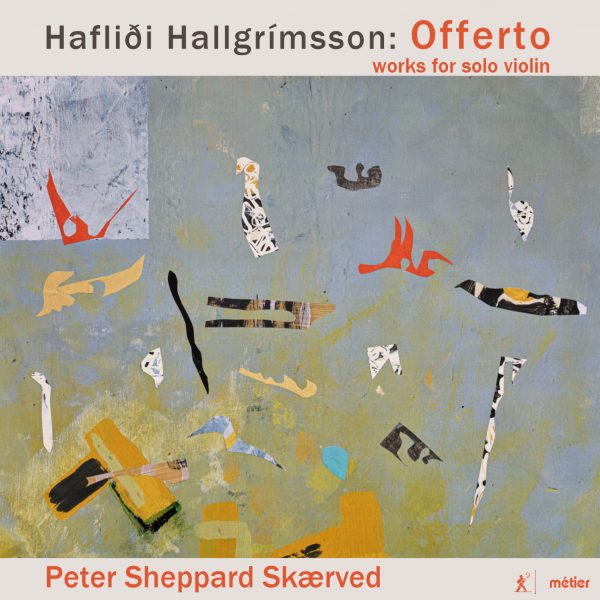Infodad
Since Icelandic composer Hafliði Hallgrímsson (born 1941) is also a fine cellist, it would be reasonable to expect string-solo music by him to focus on the cello. But a new Métier CD with Peter Sheppard Skærved instead features the solo violin – and shows Hallgrímsson to be quite adept in writing for it. There are two multi-movement suites here called Klee Sketches, both dedicated to Skærved and both showing fine command of the violin’s solo capabilities – along with some rather esoteric tone-painting and equally abstruse wit and humor.
Hallgrímsson’s musical sound here is approachable and often genuinely interesting, although some familiarity with the art of Paul Klee (1879-1940) is certainly needed to get the full flavor of movements with titles such as “Klee Experimenting with a New Scale,” “Do Not Neglect Your Pizzicato Herr Klee,” “Klee Sounds Out an Etching He Is Contemplating,” and “Klee Entertaining Kandinsky” – that movement referring to Wassily Kandinsky (1866-1944), who, along with Klee, was one of the artistic group known as Die Blaue Vier (“The Blue Four”). Hallgrímsson clearly draws inspiration from Klee’s very personal stylistic mixture of cubism, surrealism and expressionism, and seems to have no trouble producing 15 movements (between the two solo-violin suites) with references (admittedly sometimes oblique) to Klee – who, it is worth noting, himself created some 9,000 works, leaving plenty for Hallgrímsson to be inspired by.
The two Klee suites are interestingly complemented by the earlier (1991) Offerto (in memoriam Karl Kvaran), which Hallgrímsson created in memory of his friend, an artist who lived from 1924 to 1989. Unlike Klee, Kvaran is not internationally known, but interestingly, Hallgrímsson’s four-movement Kvaran memorial suite speaks more directly and universally than do his more-rarefied Klee Sketches. The movement titles in Offerto are not entirely reflective of the music’s sound, but do show the contemplative nature of the material: “Written in Sand,” “Lines without Words,” “The Flight of Time,” and “Almost a Hymn.” Skærved plays all the material on this disc knowingly, idiomatically and expressively, emphasizing now the music’s dissonant and overtly “modern” elements, now its more-lyrical and emotional ones. Hallgrímsson’s music is something of an acquired taste, but this release shows it to be interesting and involving enough to be worthwhile for more people to acquire.
@divineartrecordingsgroup
A First Inversion Company
Registered Office:
176-178 Pontefract Road, Cudworth, Barnsley S72 8BE
+44 1226 596703
Fort Worth, TX 76110
+1.682.233.4978












